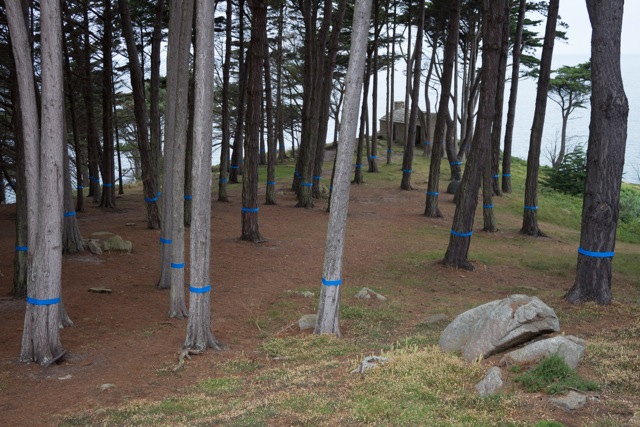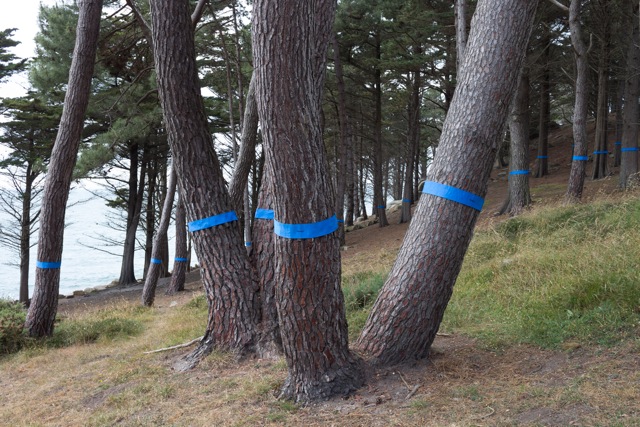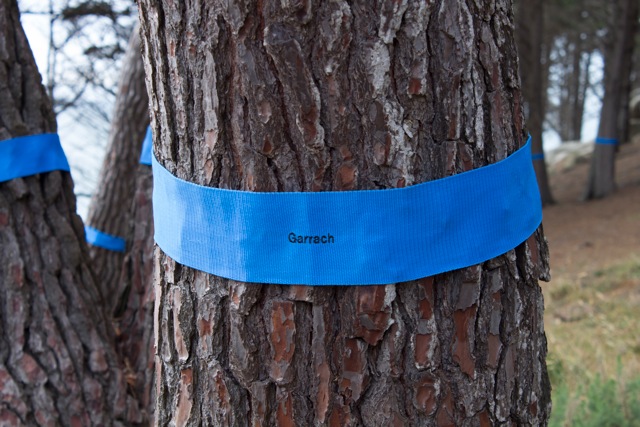Le jour où ils sont arrivés



Le jour où ils sont arrivés, 2015
site-specific intervention (exhibition at the Galerie du Dourven, France)
Voice : Katia Lutzkanoff et Lionel Monnier
THE DAY WHEN THEY ARRIVED
TEXT BROADCAST ON EARPHONES ON THE VERANDA
“But why have they disembarked here this very morning? No one knows.
They were seen from afar arriving on their strange crafts. They were countless.
We knew who they were. They were fleeing from war and misery. And they wanted to make use of their liberty. For a long time we refused them access to our lands. It was a long, sad, empty and cruel time. But already, even in those years, we knew that our time was past and that theirs was imminent. We had given up making liberty a crime. And we waited for them.
To eat meat at every meal: we knew that couldn’t last, that we could not indefinitely devote our most beautiful land to feeding animals. We also knew that our tee shirts, our telephones and our products could not always be processed far away. We knew that one day our lives would no longer be made easier by the poverty of others.
Why had we the right to travel, but not them? Why could goods circulate freely but only some men have the right to travel the world? This could only be an interlude.
Some claimed that the time for a new balance had come; that from this time the injustices, which were tearing the world apart, were outworn. But most saw that our rule had come to an end; that above all, it was time to hand it over.
When they arrived, they crossed our hills. They did not want to stop here. They knew where they were going. We watched them pass and we stayed here: our glory taken from us, only our memories remaining.”
THE DAY WE LEFT TEXT BROADCAST ON EARPHONES ON THE VERANDA
And, one morning, we knew that they were waiting for us. Why had they changed their minds? Why after years of closing their borders, had they changed their laws? No one knows. But the opportunity was too good. Then we left. All. Or, rather, those those who left were the right age to conquer the world: we knew that our hour had come.
We built our new boats, little round arks, protected by the gods; and we left to face the waves.
And yet, we loved our island, we would not have thought of leaving if the land had not dried out, if others had not caught our fish and if our cotton had had its chance on distant markets, or if our oil had not made someone else’s fortune.
We would not have known idleness, misery, illness and the convulsions of war. We could have stayed in the heart of our forests and continued to cultivate the land of our ancestors, to dance on the shores of our seas.
For so long, we watched the ocean like an impenetrable image. We thought of our comrades having left by night to take their chances beyond the horizon, not knowing whether they survived the waves. We knew that one day we would also leave, that another life awaited us in the beyond.
Sometimes the men from the continent visited us. They said they loved our land, our sun, our beaches. Then they set out again under our astonished eyes. We were allowed to welcome them but we did not have the right to go amongst them.”
WHAT’S THE USE? TEXT BROADCAST FROM THE COASTGUARDS’ (LOOK OUT?)
“When I joined the police force, I did not think that I would be dealing with migrants. I imagined that I would be of service to society; help people; defend justice; widows and orphans… And then the adrenaline too: I wanted to be at the center of the action. Like in the films.
My job is to ensure that others abide by the law. But sometimes it is like Penelope’s weaving. A camp is made to welcome the migrants and then it is closed down. Then the migrants have to go a bit further away and put together shelters in the woods. But then we would dismantle their make-do camps so they would set up somewhere else. It’s unending.
Etymologically ‘dismantling’, means to take off one’s cloak (mantle). But what’s the use of our ‘taking off their cloaks’? Families are separated, men taken away return. What’s the use? Like emptying the Sahara with a sieve.
A balancing movement would be needed to enable people who want to work in our homeland and then go back to their own country, as many aspire to such an existence. Actually, those who do not want to go back home are rare.
But this has not happened yet; now they are still looked for, stopped and sent back. And me, I have nothing else to do. I wait.
For ten years I have been waiting for them, scrutinizing the horizon in search of their little vessels. But I know one day they will arrive in countless numbers and what will I do then?
While I wait, I clean my weapons, brush my waistcoat, check my taser, play with my tonfa …
And what if they arrive by night? I have been promised some night sight glasses to see like a cat. But I am always waiting for them. I wait. I’m still waiting.
When I was little I did not like waiting. I wanted everything immediately. To attack, not wait.
I waged big battles with little soldiers. I arranged the front lines. I prepared offensives. And then it was the big day – the great mêlée. Merciless. But now there will be no great battle. Nobody is going to be massacred. And we won’t build new and bigger Bastilles, to lock them up; and destroying the boats would not advance anything. What will we do then?
Perhaps one day they will no longer want to come. They will be the rich ones and we will be the poor. Unless there will no longer be rich and poor. But I think that is too much to believe in …
Isn’t that a junk down there? … No. It’s nothing.
My grandparents, when they fled Spain in ‘39 and came to France, they were also put into a detention center… in fact, though, they weren’t called that, they were called concentration camps. Concentration camps. They weren’t those of the Nazis but still it was odd – concentration, detention, retention. You round up, detain, and finally hold. But in fact you don’t want any of it. You want to send them back. They should be called centers of repatriation, expulsion zones or departure lounges …
I have worked with planes, it was not the easiest job. We are in the public eye. The expelled people often struggle violently. They do not want to be taken away. So they are constrained. We seat them with their heads between their knees in the plane seats. But, you need to take care. Some have suffocated to death …
Now and then some passengers will get up,resist, refuse to be bound. Then one has to negotiate with them. And if nothing can be resolved, it’s up to the pilot. He can make them get off if he wants.
The show: soldiers, showing off their equipment in the stations as if replaying the Algerian war with resistance fighters hiding in the alleys. Is it to reassure the man on the street? I don’t know. In any case they must be terribly bored … even worse would be white van man waiting during demonstrations. As for me, still and always waiting. Boredom is part of the job.
There are those who check the bags, spending their days pretending to do something. Because the state cannot merely undertake secret investigation, like tracking down criminal hierarchies and thwarting plans. Images. Images must be produced.
So it goes, but it’s not terrorists we are after here, it’s migrants.